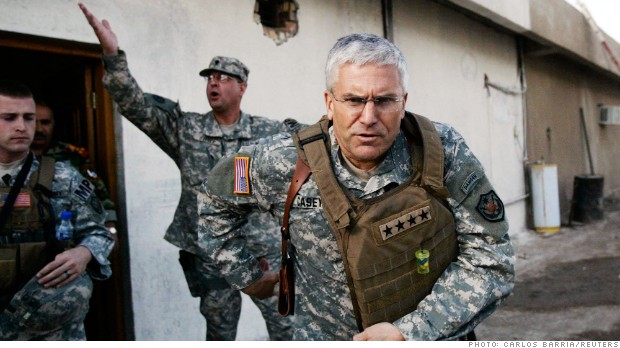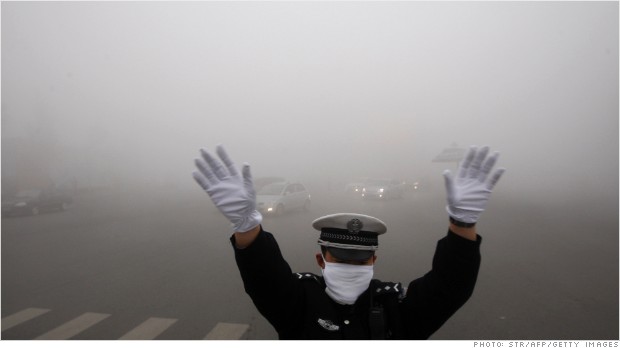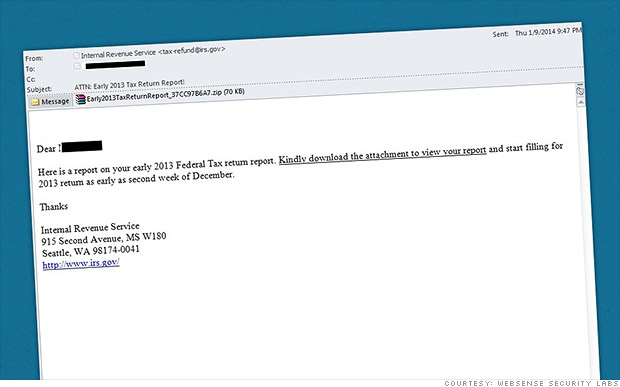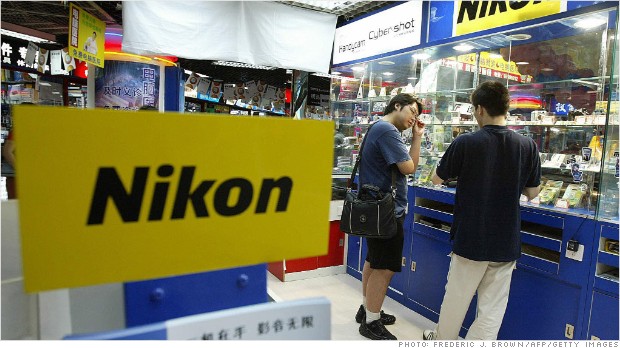
Gen. Casey leaves a meeting with Iraqi army officers in Baghdad, February 2007.
(Fortune)
In reality, VUCA has never been more relevant, for the military and for business. I experienced VUCA environments in Bosnia (1996), in Kosovo (2000), and in Iraq (2004-07). Leading grew progressively more difficult in those conflicts, with Iraq unquestionably the toughest. I believe that my experiences leading in those environments can benefit business leaders.
The reason is that the primary function of any leader is to point the way ahead. I've learned that doing so in VUCA environments is extraordinarily difficult. Leaders need to "see around corners" -- to see something significant about the future that others don't see. Yet the more VUCA the environment, the harder it is for leaders themselves to comprehend the situation, let alone articulate a clear way forward. VUCA environments thus become invitations for inaction -- people are befuddled by the turmoil and don't act. And to succeed, you must act!
Effective action begins with a clear statement of what needs to be accomplished. As the commander in Iraq and later as the Army Chief of Staff, I made the No. 1 question I asked: "What are we really trying to accomplish?" The higher in the organization I was, the more complex the issues became and the harder it was for me to answer that question clearly and succinctly. I had to force myself to get clarity in my own mind so that I could clearly articulate to my subordinates how I saw things and what I wanted them to do. I found that the clearer I could be -- even if I wasn't exactly right -- the better we executed. Without a clear focus, there was no common purpose, and without common purpose, there wasn't effective execution. In war -- and business -- that is fatal.
MORE: The World's 50 Greatest Leaders
Consider my experience in Iraq. When I took command in July 2004, I had about 30 days to come to grips with the new environment, build a relationship with the new Iraqi government, and develop a plan for succeeding, all the while keeping a burgeoning insurgency at bay. I had a lot on my plate.
Then, almost immediately, we confronted a countrywide uprising after a young Marine made a wrong turn and drove too close to a militia leader's house in the key city of Najaf, home to the Imam Ali Mosque, the third-holiest site in Shia Islam. In response the militia leader, Muqtada al-Sadr, whose forces had been terrorizing the population of Najaf for months, rapidly mobilized his forces in Najaf, Baghdad, and southern Iraq, and fighting escalated. That's volatility.
With an inexperienced Iraqi government, a mere two battalions in the Iraqi army, 162,000 coalition forces from 33 countries engaged in a form of combat for which they had not prepared, in a culture they didn't fully understand or appreciate, and against a diverse and committed enemy, our ability to achieve our desired outcome was hugely uncertain. In addition, Iraq was the most complex environment I had ever experienced. I had to consider not only what the U.S. government wanted but also how our decisions would affect the Iraqi government, our coalition of 33 countries, and the varying Iraqi factions -- and that was just our side. In war the enemy has a vote. On almost every issue I had to consider multiple and competing internal and external variables that, if I chose incorrectly, could produce undesirable outcomes.
MORE: World's Greatest Leaders: 9 dynamic duos
Ambiguity? The reporting that I received was all over the map -- Sadr had been killed! No, he was just wounded. An errant bomb had damaged the mosque! No, it was the hotel next door. The Iraqi Special Forces had arrived! No, they were still on the way.
VUCA conditions conspired to postpone action. Yet I had to act fast because my troops were under attack.
Over the years I had developed an offensive mindset -- I worked aggressively and opportunistically to gain an advantage. That attitude kept me from being cowed by the complexity and ambiguity of the situation, and I was able to perform a leader's first duty -- to point a clear way ahead. I quickly saw the battle for Najaf as an opportunity for the new Iraqi government to demonstrate its strength. In less than 24 hours, I consulted with the Prime Minister and instructed my forces to restore Iraqi government control of Najaf, which in the following weeks they did. The Prime Minister had his first victory.
I got the chance to apply what I had learned in Iraq when I became the Army Chief of Staff in 2007. As I began developing my vision to guide the Army through my four-year tenure, I initially thought it would be something flashy, like "America's Army -- an agile, disciplined warrior team, dominant across the spectrum of 21st-century conflict." I couldn't have been more wrong.
In a four-month tour of the Army, talking with men and women of all ranks, I found an organization stretched by six years of war and facing another five to 10 years of continual deployments. Over 3,000 soldiers had given their lives, leaving 10,000 surviving family members. Another 25,000 soldiers had been wounded, some 5,000 seriously enough to require long-term care. We also were just beginning to come to grips with the impacts of posttraumatic stress and traumatic brain injury on thousands of soldiers. In all the turbulence, readiness suffered. The magnificent volunteer force that we had built so painstakingly since the early 1970s was seriously frayed.
MORE: 20 of Hollywood's greatest fictional leaders
I came to see the Army as out of balance -- so weighed down by current demands that we couldn't adequately care for soldiers or prepare for the future. I realized that when you are out of balance, there is only one thing to do: Get back in balance. I thus arrived at a simple -- and clear -- vision statement: "Put the Army Back in Balance." It wasn't quite so glamorous a vision as I had originally imagined, but because it was clear, it guided a Herculean Army-wide effort that left us in a fundamentally different and better position four years later.
Leaders are human and possess only so much intellectual and emotional energy. To succeed in a VUCA world, we must expend that energy in the areas that produce the highest payoff for our organizations. Our first priority must be developing and articulating a clear vision to drive our organizations' actions. The clearer leaders can be about what they want to accomplish, the better their organizations will execute in the volatility, uncertainty, complexity, and ambiguity of today's global business environment.
George W. Casey Jr. was Army Chief of Staff and Commanding General of the Multinational Force in Iraq. He is now a consultant with the Minot Group and a Distinguished Senior Lecturer of Leadership at Cornell.
This story is from the April 7, 2014 issue of Fortune. 
First Published: March 20, 2014: 7:52 AM ET
![]()





